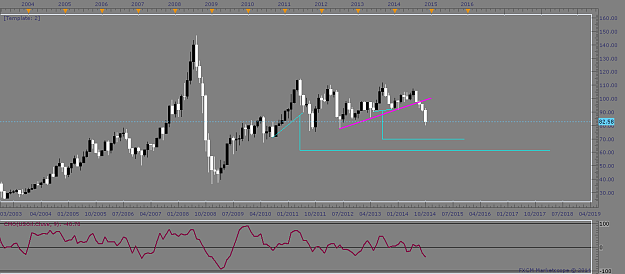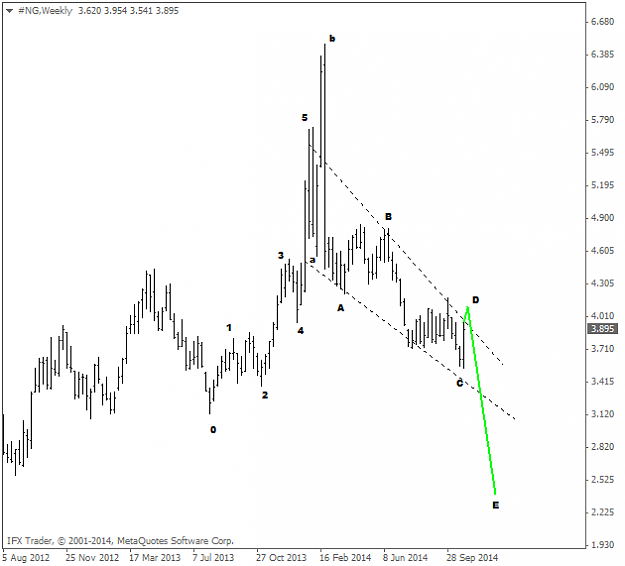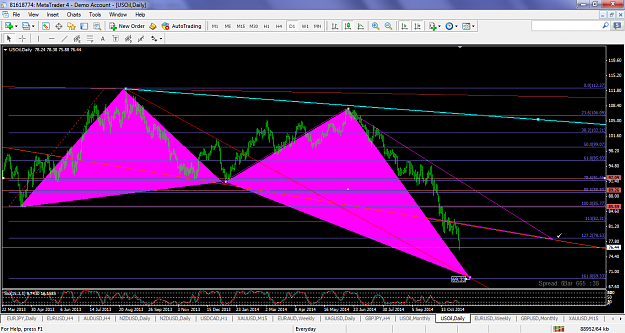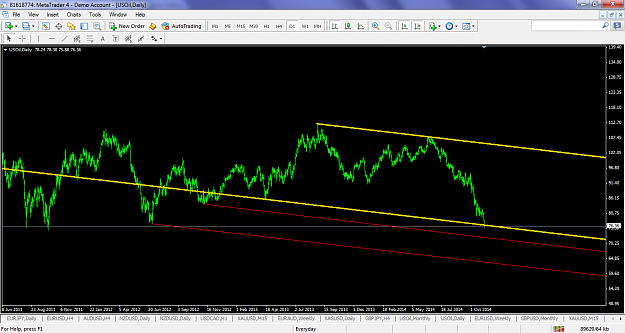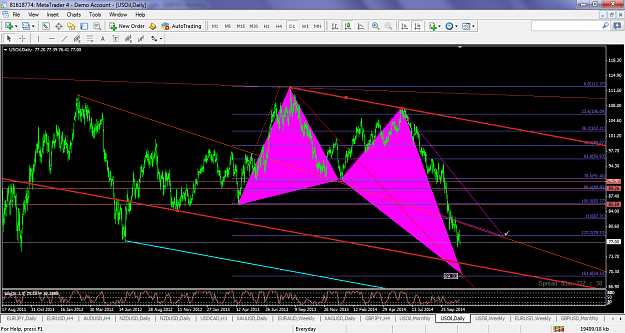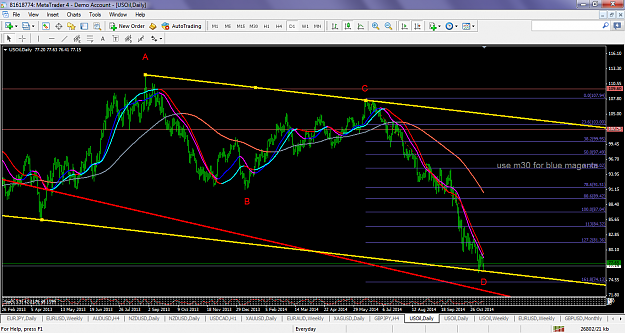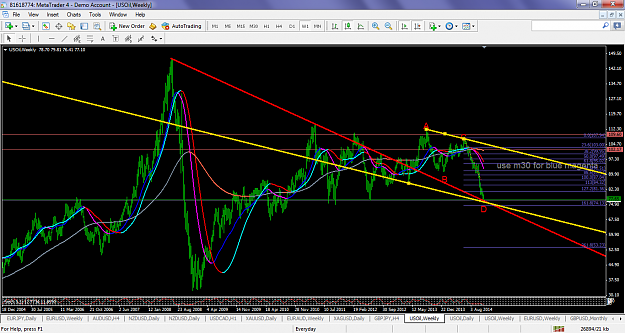Oil Slide Puts Central Bankers Over Deflationary Barrel
By Simon Kennedy and Greg Quinn
October 15, 2014 4:20 AM EDT
32
Ever since the oil shock of the early 1970s, central bankers have fretted that rising energy prices spelled recession.
Now they’re discovering cheaper energy can be a headache too, especially when warding off deflation is the economic challenge du jour.
Historically, the 27 percent drop in Brent crude from its June peak to its lowest in four years would have been a reason for happiness among policy makers. It makes it cheaper for companies to churn out everything from cars to toys and for consumers to fill their tanks, spurring demand.
A study published in August by the Federal Reserve calculated rising oil prices explained a 5 percent reduction in the size of the U.S. economy during the recent financial crisis.
So what could be wrong now? More than almost ever, central banks are as worried about low inflation as weak growth. What they’re working against is a deflationary spiral that will drive up debt burdens and derail demand as businesses and households retrench in anticipation of even lower prices.
Just yesterday, the U.K. reported the slowest inflation in five years and prices actually fell in Sweden for a second month. The euro area will say tomorrow that its rate is also the weakest since 2009.
A survey of fund managers by Bank of America Corp. yesterday reported global inflation expectations are at two-year lows and only a net 18 percent view monetary policy as too stimulative, down 14 percentage points from last month and the weakest since August 2012.
Oil Impact
Bank of America economist Gustavo Reis calculates a 20 percent drop in the oil price would shave 0.5 percentage points off global inflation in the next year, pushing the rate back toward the 1.7 percent it reached in 2009 from 2.2 percent.
A persistent decline in energy and agriculture costs “would put a significant downward pressure on headline inflation,” New York-based Reis wrote in an Oct. 10 report.
European Central Bank President Mario Draghi has particular reason to be anxious. He already blames energy and food prices for a “large extent” of the slowing in euro-area inflation to its weakest in almost five years.
Fed Chair Janet Yellen will be less concerned given she doesn’t face a deflation risk. What’s more, Deutsche Bank AG economist Joseph LaVorgna estimated yesterday that if the recent decline in energy costs is maintained, consumer cash flow would improve by $40 billion.
At the same time, the U.S. is now the world’s biggest oil producer and is again a net exporter.
“Cheaper oil is a good thing for the U.S. economy overall, but may be a reason the Fed errs on the side of keeping rates low or raising them more slowly,” said Andrew Kenningham, an economist at Capital Economics Ltd. in London.
The Bank of Japan is sounding more upbeat. “Japan imports massive amounts of oil so falling oil prices itself is a plus for the economy,” Bank of Japan Governor Haruhiko Kuroda said in Washington last week.
By Simon Kennedy and Greg Quinn
October 15, 2014 4:20 AM EDT
32
Ever since the oil shock of the early 1970s, central bankers have fretted that rising energy prices spelled recession.
Now they’re discovering cheaper energy can be a headache too, especially when warding off deflation is the economic challenge du jour.
Historically, the 27 percent drop in Brent crude from its June peak to its lowest in four years would have been a reason for happiness among policy makers. It makes it cheaper for companies to churn out everything from cars to toys and for consumers to fill their tanks, spurring demand.
A study published in August by the Federal Reserve calculated rising oil prices explained a 5 percent reduction in the size of the U.S. economy during the recent financial crisis.
So what could be wrong now? More than almost ever, central banks are as worried about low inflation as weak growth. What they’re working against is a deflationary spiral that will drive up debt burdens and derail demand as businesses and households retrench in anticipation of even lower prices.
Just yesterday, the U.K. reported the slowest inflation in five years and prices actually fell in Sweden for a second month. The euro area will say tomorrow that its rate is also the weakest since 2009.
A survey of fund managers by Bank of America Corp. yesterday reported global inflation expectations are at two-year lows and only a net 18 percent view monetary policy as too stimulative, down 14 percentage points from last month and the weakest since August 2012.
Oil Impact
Bank of America economist Gustavo Reis calculates a 20 percent drop in the oil price would shave 0.5 percentage points off global inflation in the next year, pushing the rate back toward the 1.7 percent it reached in 2009 from 2.2 percent.
A persistent decline in energy and agriculture costs “would put a significant downward pressure on headline inflation,” New York-based Reis wrote in an Oct. 10 report.
European Central Bank President Mario Draghi has particular reason to be anxious. He already blames energy and food prices for a “large extent” of the slowing in euro-area inflation to its weakest in almost five years.
Fed Chair Janet Yellen will be less concerned given she doesn’t face a deflation risk. What’s more, Deutsche Bank AG economist Joseph LaVorgna estimated yesterday that if the recent decline in energy costs is maintained, consumer cash flow would improve by $40 billion.
At the same time, the U.S. is now the world’s biggest oil producer and is again a net exporter.
“Cheaper oil is a good thing for the U.S. economy overall, but may be a reason the Fed errs on the side of keeping rates low or raising them more slowly,” said Andrew Kenningham, an economist at Capital Economics Ltd. in London.
The Bank of Japan is sounding more upbeat. “Japan imports massive amounts of oil so falling oil prices itself is a plus for the economy,” Bank of Japan Governor Haruhiko Kuroda said in Washington last week.
Wooooohooooo or Boooooohooooo
